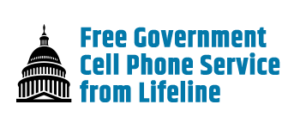How Free Government Phones Support People with Disabilities
In today’s connected world, access to communication is vital for everyone—especially for individuals with disabilities. Free government phones, offered through the Lifeline Assistance Program, provide critical support to people with disabilities, helping them maintain independence, access essential services, and stay connected with loved ones.
Here’s how free government phones are making a difference for people with disabilities:
1. Accessibility Features
Free government phones often come equipped with features designed to accommodate various disabilities. Many smartphones include:
- Voice commands for those with mobility impairments
- Screen readers for visually impaired users
- Hearing aid compatibility for those with hearing impairments
- Text-to-speech and speech-to-text options
These features make it easier for people with disabilities to use their devices without facing unnecessary barriers.
2. Connection to Emergency Services
Staying connected to emergency services is crucial for individuals with disabilities. Free government phones ensure that users have a reliable way to contact first responders, healthcare providers, or caregivers when needed. Whether it’s calling for medical assistance or reporting an emergency, these phones provide peace of mind and increased safety.
3. Access to Healthcare and Resources
Telemedicine has become a critical tool for people with disabilities, enabling them to consult with healthcare providers remotely. With a free government phone, individuals can schedule virtual appointments, manage prescriptions, and receive health updates without leaving their homes.
Additionally, the phones provide easy access to disability services and resources. Many organizations offer apps and websites designed to support people with disabilities, and having a phone ensures that these resources are always available.
Lorem ipsum dolor sit amet, consectetur adipiscing elit. Ut elit tellus, luctus nec ullamcorper mattis, pulvinar dapibus leo.
4. Staying Connected with Support Networks
Isolation can be a challenge for people with disabilities, especially for those with limited mobility. Free government phones help users stay connected with friends, family, and caregivers. Regular communication can reduce feelings of loneliness and provide a stronger sense of community, which is essential for mental and emotional well-being.
5. Financial Relief for Low-Income Individual
People with disabilities are often faced with high medical costs and may have lower incomes due to their condition. Free government phones provide financial relief by eliminating the cost of a phone and monthly service. This allows individuals to focus their financial resources on healthcare and other essential needs
6. Employment Opportunities
For people with disabilities, a phone can also serve as a lifeline to employment opportunities. Many jobs now offer remote work options, and a free phone allows individuals to participate in job searches, attend virtual interviews, and communicate with employers—all of which can lead to greater independence and financial security.
Conclusion
Free government phones play an essential role in improving the lives of people with disabilities. By providing accessible, reliable communication, these devices support safety, healthcare access, social connection, and employment opportunities. Through programs like Lifeline, individuals with disabilities can stay connected, empowered, and engaged with the world around them.
